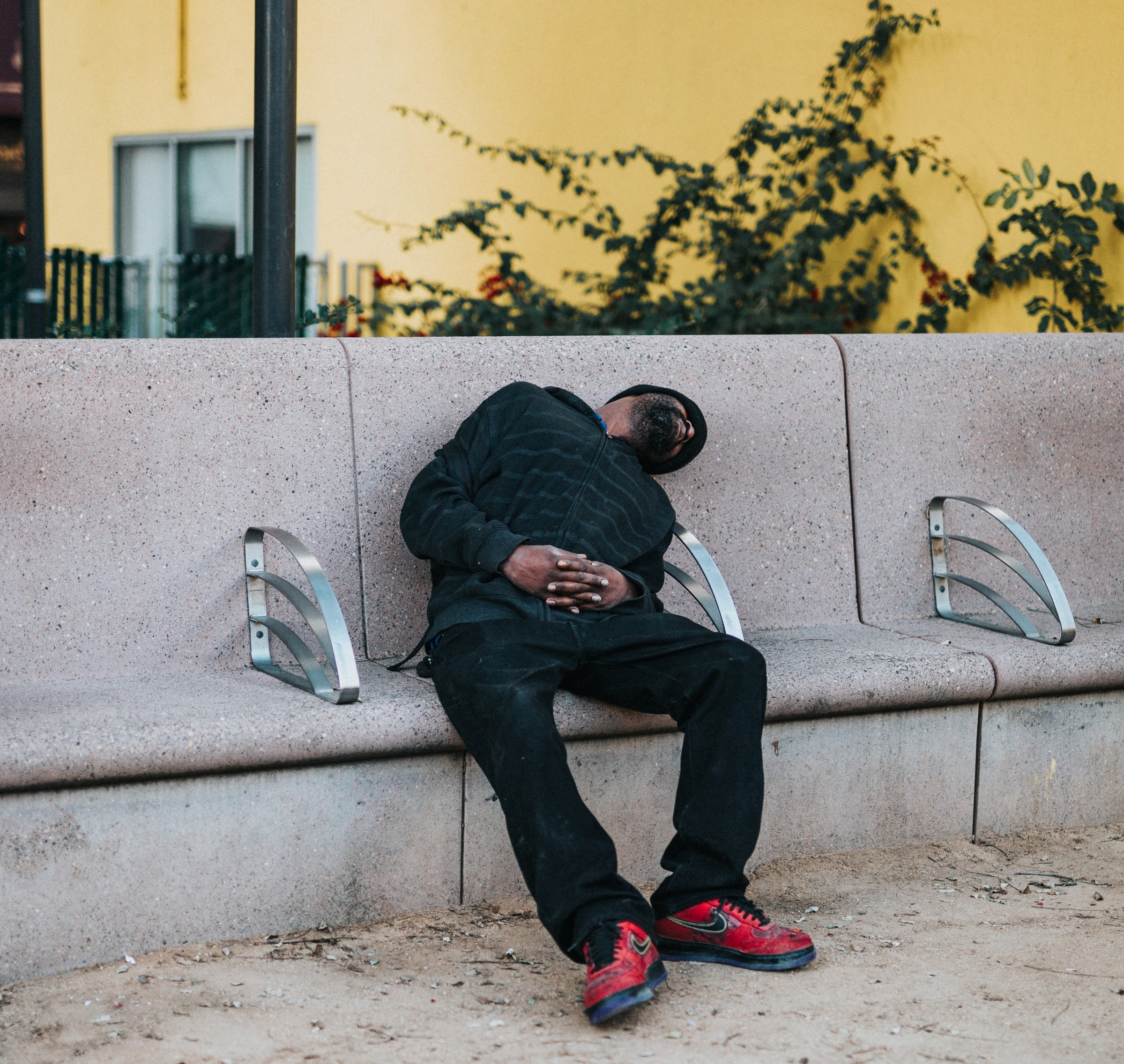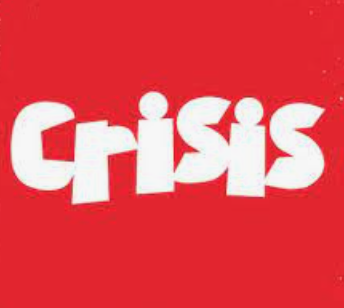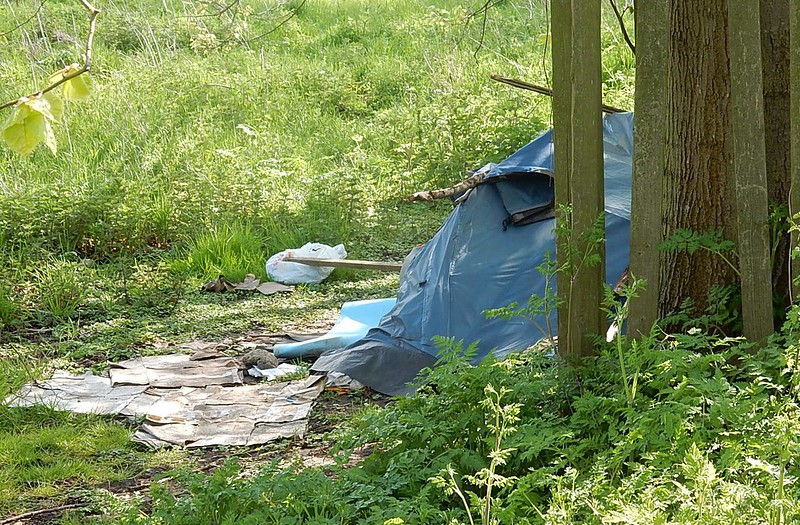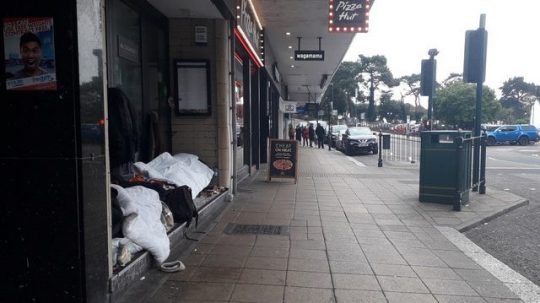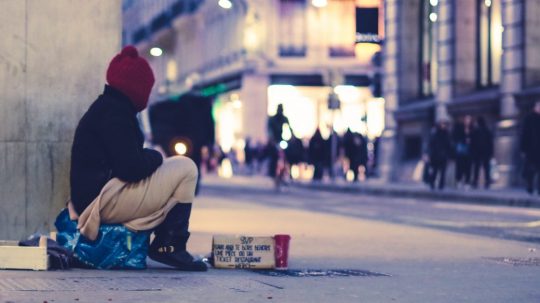The government has proposed replacing previously repealed legislation that makes begging and rough sleeping a criminal offence. The move comes after parliament scrapped the Vagrancy Act, a 200-year-old law that criminalised sleeping rough and begging in England and Wales. The Act was repealed through an amendment to the Police, Crime, Sentencing and Courts Act (PCSCA) in April.
In 2020, the UN Human Rights Council, of which the UK is a member, adopted a resolution saying that countries should “eliminate legislation that criminalizes homelessness”. Under the Universal Declaration of Human Rights and the International Covenant on Economic, Social and Cultural Rights, everyone has a right to adequate housing as part of their right to an adequate standard of living.
However, the government has outlined provisions to include legislation that is the same or similar to sections of the Vagrancy Act 1824 in its current Levelling Up and Regeneration Bill. In a clause in the Bill, it states that it will disregard the repeal of the Vagrancy Act in the PCSCA, in effect re-criminalising rough sleeping and begging.
The Bill is currently at committee stage, where it is examined line by line by the Public Bill Committee. At present, the Bill contains ‘placeholder text’ to enable it to legislate to replace the sections of the Vagrancy Act which criminalise rough sleeping and begging at a later stage in the Bill’s passage through parliament. The government will seek to delay the repeal of the Vagrancy Act, which has been set in train but has not yet actually happened, until after it has legislated on the Act’s replacement.
The government stated that the new legislation would give the police powers to respond to “harmful instances of begging”. It has previously described rough sleeping as a “nuisance” which has a negative impact on local communities.
Under section 4 of the Vagrancy Act, sleeping rough is a criminal offence. A parliamentary briefing reported that, in 2019, there were 183 prosecutions and 140 convictions under section 4, with four convictions being for the specific offence of ‘sleeping out’. Section 3 of the Vagrancy Act 1824 states that begging is a criminal offence. In 2019, there were 926 prosecutions and 742 convictions for begging. In most cases, the convicted person was fined.
The move comes after the government’s consultation on replacing the Vagrancy Act, which ended in May.
Punishing rough sleepers shows government has ‘no compassion’
Homelessness charities have voiced their concerns over the proposed legislation.
Crisis, a charity which aims to end homelessness, campaigned for the repeal of the Vagrancy Act. Its Director of Policy and External Affairs, Kiran Ramchandani, said: “We did not campaign against the obscene Vagrancy Act for it to be scrapped in name only. So, we sincerely hope the UK government sticks to its word and ends the criminalisation of people experiencing homelessness as quickly as possible.”
She said that the government must ‘not punish anyone for being destitute’ and for not having a home.
“To do so would not only be completely lacking in compassion but would also make the same mistake as the Vagrancy Act: driving people further away from support out of fear of arrest and keeping them on the streets for longer,” said Ramchandani.
Polly Neate, chief executive of homelessness support charity Shelter, commended the government on repealing the Vagrancy Act but said that its attempts to replace it with similar legislation ‘undermined its own promise’.
Neate said: “We do not need more legislation that punishes people with nowhere else to go. Fining people who are street homeless effectively criminalises them for being destitute. It causes people to rack up debts and makes it even harder to access accommodation and afford rent.”
She added that the government should focus on preventing people from becoming homeless, rather than fining them for begging and sleeping rough.
“To tackle the structural causes of homelessness, it [the government] must invest in decent social homes that are genuinely affordable, and make housing benefit fit for purpose so that people can keep a roof over their heads,” said Neate.
Lord Bird, the founder of The Big Issue and a crossbench peer in the House of Lords, called the proposals “disappointing”.
He said: “The Vagrancy Act was first repealed as part of the Police, Crime, Sentencing and Courts Act 2022 following a long and difficult campaign. Based on outdated laws, unreliable data and unrealistic expectations, the new clause brings back the idea of turning homeless people into criminals. This is not the way the most vulnerable among us should be treated or perceived.”
Lord Bird added that the government could instead focus on the provision of support for those unable to pay their rent or mortgage rates, the end of no-fault evictions and providing training and jobs in sustainable industries.
MPs fight to remove Vagrancy clause
Conservative MP Nickie Aiken tabled an amendment to the Bill last month to scrap the clause that would replace the Vagrancy Act. The amendment was signed by 15 other MPs, including Robert Jenrick, the former Secretary of State for Housing, Communities and Local Government. The amendment will be considered by the Public Bill Committee.
Aiken raised concerns in a parliamentary reading of the Bill. She said that she did not support the government’s plan to “override” the repeal of the Vagrancy Act.
“Section 4 [of the Vagrancy Act] refers to ‘rogues and vagabonds’. We live in the 21st century, and I have not seen a rogue or a vagabond on the streets of Westminster for some time,” Aitken said.
A government spokesperson said: “We are clear that no-one should be criminalised for having nowhere to live. That is why we are repealing the antiquated Vagrancy Act.”
They added: “We have committed to bring forward proposals to make sure vulnerable people are supported to access essential support, while also ensuring the police still have the tools they need to keep people safe.”
“Over the next three years, we are giving councils £2 billion to tackle homelessness and rough sleeping.”

